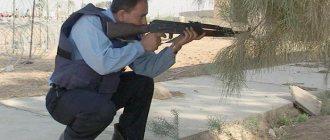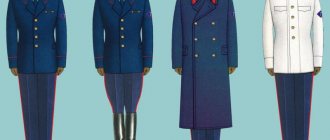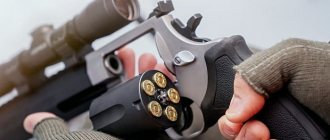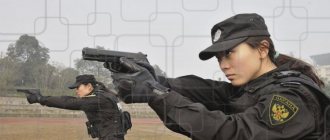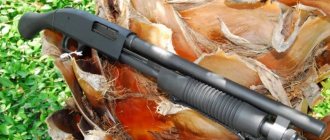The use of physical force, special means and weapons by officials and citizens, including those in the ranks of the Armed Forces, is regulated by Charters, Federal Laws and other legal documents. The regulations contain an indication of the existence of extreme necessity. In particular, the UVS speaks about this (Article 13). The use of weapons is considered a last resort. Let us further consider in detail the situations in which this is permitted by currently applicable regulations.
Repelling an attack
The use of firearms by police officers is permitted if there is a threat to protected objects. These include, among other things, the location of units and military units, columns of vehicles, echelons, structures and buildings, individual vehicles and guards. The attack can be either armed or unarmed in a group. According to the form of the action, according to its reflection, it is regarded as a necessary defense. Meanwhile, an armed attack has the hallmark of a threat to life. Its presence, in accordance with Art. 37, Part 1 of the Criminal Code, allows any harm to be caused to an entity encroaching on the above objects. At the same time, an unarmed group attack is not associated with a direct threat to life. According to criminal standards, in such a situation, causing death is not allowed as justifiable harm. Accordingly, the use of weapons by military personnel may be permitted after an assessment of the proportionality of the potential harm and the damage caused in response.
Regulations on the use of special and military equipment
Soldiers of the Russian Guard are authorized to use combat and special equipment that makes up the arsenal of the VNG troops in cases of releasing hostages, protecting civilians and military personnel, forcibly stopping (intercepting) cars and other vehicles that pose a threat to life, health of people, the integrity of government facilities and especially important cargo.
For violation of the procedure for the use of military equipment and weapons and the harm caused, members of the National Guard are subject to disciplinary, civil, and criminal liability (depending on the situation and the elements of the offense or crime).
The use of weapons by military personnel occurs in accordance with Articles 18-22 of the Federal Law
Defense against attack
The use of firearms by the police is permitted if there is a threat to the life or health of citizens, both civilians and those in the ranks of the Armed Forces. At the same time, it must be stated that it is impossible to protect these persons by other means. The conditions of necessary defense cover this situation, if we exclude from it a threat to health. It does not allow defensive actions aimed at causing death. The indication in this provision of other methods of ensuring protection limits the scope of the legality of the necessary defense, provided primarily in Art. 37, part 1 of the Criminal Code. According to experts, adding to the order the phrase “if it is not possible to achieve protection by other means” is legally redundant.
Detention
The use of firearms is permitted against a person who is resisting. In this case, one condition must be met. The subject must offer armed resistance. Officials may detain a citizen who refuses to comply with their demands. A pistol, machine gun, etc. can be used if a citizen is armed and does not want to voluntarily surrender his weapon. This situation is, by all appearances, similar to the detention of a subject who has committed a crime.
The very fact of illegal armament and resistance can be qualified as a criminal offense. According to Art. 38 of the Criminal Code, the purpose of detention is to deliver a citizen to specially authorized bodies (law enforcement) and to suppress the commission of new crimes by this subject.
According to the norm, causing death is not permitted under any circumstances. With a more in-depth analysis, one can find that armed resistance, which turns out to be a detained person from the moment the opposition to representatives of law enforcement agencies begins, is transformed into an assault. It contains a threat to the life of an official. Accordingly, a condition for necessary defense arises. At the same time, the presence of a weapon in the person being detained, even if he does not use it at the time of suppression of his actions, can be considered a sufficient basis for appropriate retaliatory actions that could lead to his death.
On the powers of the National Guard military personnel
The incomplete list of powers given to the National Guard includes the following actions:
- stopping citizens to check documents;
- detention and delivery to the police department of persons allegedly committing a crime;
- the requirement to maintain law and order and stop illegal activities;
- suppression of violation of public order;
- blocking the territory, cordoning off the building and premises;
- opening and inspection of cars and other vehicles that have violated the order;
- blocking vehicle traffic;
- penetration into institutions and residential premises in order to eliminate a threat to life.
Military personnel of the Russian Guard have the right to use firearms, physical force, and special equipment in situations specified by the Federal Law “On the VNG of the Russian Federation.”
Prohibitions
They are established in Art. 14, part 4 UVS. In accordance with the norm, the use of weapons in relation to:
- Minors, when age is known or obvious.
- Women.
- Citizens with obvious (external) signs of disability.
The exception is situations when these persons commit a group or armed attack that creates a threat to other persons. The use of weapons in such cases is permitted if it is not possible to eliminate the danger posed by them by other means.
Unlike Art. 28, Part 3 of the Federal Law regulating the activities of internal troops, the specified prohibitions lack a number of provisions. In particular, there is no indication of the armament of the resistance and the non-use of weapons in large crowds of citizens. Meanwhile, for the sake of completeness of the analysis, it must be said that the above exceptions that abolish the prohibitions cannot cover the entire breadth of situational diversity, when a threat to life from attacks by disabled people, women and minors may manifest itself in others different from those established in Art. 14, part 4 UVS forms. This, in turn, means that military personnel have the right to use weapons against specified subjects in situations that go beyond the restrictions provided for in the norm. In this case, there must be a danger to life if they attack in any other form.
- Article 12.
Conditions and limits of the use of physical force, special means and firearms - Article 13.
Use of physical force - Article 14.
Use of special means - Article 15.
Application and use of firearms - Article 16.
Guarantees of personal safety of an armed police officer
Section IV
Use of physical force, special means and firearms by the police
Article 12.
Conditions and limits of the use of physical force, special means and firearms
The police have the right to use physical force, special means and firearms only in cases and in the manner provided for by this Law, and employees of temporary detention centers for suspects and accused persons of internal affairs bodies - by the Federal Law “On the detention of suspects and accused of committing crimes.”
Police officers are required to undergo special training, as well as periodic testing to determine their suitability for action in conditions involving the use of physical force, special means and firearms.
When using physical force, special means or firearms, a police officer is obliged to:
warn of the intention to use them, while providing sufficient time to comply with the demands of the police officer, except for those cases where delay in the use of physical force, special means or firearms creates an immediate danger to the life and health of citizens and police officers, or may entail other grave consequences or when such warning is inappropriate or impossible in the circumstances;
strive, depending on the nature and degree of danger of the offense and the persons who committed it, and the strength of the counteraction provided, to ensure that any damage caused in this case is minimal;
ensure that persons who have received bodily injuries are provided with pre-medical care and that their relatives are notified as soon as possible;
notify the prosecutor of all deaths or injuries.
The use of physical force, special means and firearms in excess of authority entails liability established by law.
Article 13.
Use of physical force
Police officers have the right to use physical force, including combat techniques, to suppress crimes and administrative offenses, detain those who committed them, and overcome opposition to legal demands, if non-violent methods do not ensure the fulfillment of the duties assigned to the police.
Article 14.
Use of special means
Police officers have the right to use special means available to the police in the following cases:
1) to repel attacks on citizens and police officers;
2) to suppress resistance to a police officer;
3) to detain a person caught committing a crime against life, health or property and trying to escape;
4) to detain persons in respect of whom there are sufficient grounds to believe that they intend to offer armed resistance;
5) to deliver detained persons to the police, escort and protect detainees, as well as persons subjected to administrative arrest and taken into custody, when their behavior gives reason to believe that they can escape or cause harm to others or themselves, or resist a police officer ;
6) for the release of forcibly detained persons, seized buildings, premises, structures, vehicles and land plots;
7) to suppress mass riots and group actions that disrupt the work of transport, communications and organizations;
 to stop a vehicle whose driver has not complied with a police officer’s request to stop;
to stop a vehicle whose driver has not complied with a police officer’s request to stop;
9) to identify persons who commit or have committed crimes.
The following can be used as special means:
rubber sticks - in the cases provided for in paragraphs 1, 2, 7 of part I of this article;
tear gas – in the cases provided for in paragraphs 1, 2, 4, 6, 7 of Part I of this article;
handcuffs – in the cases provided for in paragraphs 2, 3 and 5 of Part I of this article. In the absence of handcuffs, the police officer has the right to use improvised means of restraint;
light and sound distraction devices - in the cases provided for in paragraphs 1, 4, 6, 7 of Part I of this article;
means of destroying barriers - in the cases provided for in paragraphs 4 and 6 of part I of this article;
means of forced stop of transport - in the cases provided for in paragraph 8 of part I of this article;
water cannons and armored vehicles - in the cases provided for in paragraphs 4, 6, 7 of part I of this article, and only on the instructions of the head of the internal affairs agency, the head of the criminal police, the head of the public security police, with subsequent notification of the prosecutor within 24 hours from the moment of use;
special coloring agents - in the cases provided for in paragraph 9 of part I of this article. On property objects, special painting means are installed with the consent of the owner or his authorized person;
service dogs - in the cases provided for in paragraphs 1, 2, 3, 4, 5, 6, 9 of Part I of this article;
electroshock devices – in the cases provided for in paragraphs 1, 2, 3 and 4 of part one of this article.
All types of special means, in addition, can be used in cases provided for in Part I of Article 15 of this Law.
It is prohibited to use special means against women with visible signs of pregnancy, persons with obvious signs of disability and minors, except in cases of armed resistance, a group or other attack that threatens the life and health of people, as well as when suppressing illegal meetings, rallies, street processions and demonstrations of a non-violent nature that do not disrupt the work of transport, communications, and organizations.
In a state of necessary defense or extreme necessity, a police officer, in the absence of special means or firearms, has the right to use any available means.
The list of special means in service with the police, as well as the rules for their use, are established by the Government of the Russian Federation. At the same time, it is prohibited to arm the police with special means that cause excessively severe injuries or serve as a source of unjustified risk.
Article 15.
Use and use of firearms
Police officers have the right to use firearms personally or as part of a unit in the following cases:
1) to protect citizens from attacks dangerous to their life or health;
2) to repel an attack on a police officer when his life or health is in danger, as well as to suppress an attempt to seize his weapon;
3) to free hostages;
4) to detain a person caught committing a serious crime against life, health and property and trying to escape, as well as a person offering armed resistance;
5) to repel a group or armed attack on the homes of citizens, premises of government bodies, organizations and public associations;
6) to prevent escape from custody: persons detained on suspicion of committing a crime; persons in respect of whom detention has been chosen as a preventive measure; persons sentenced to imprisonment; as well as to suppress attempts to forcefully release these persons.
Police officers also have the right to use firearms in the following cases:
1) to stop a vehicle by damaging it, when the driver creates a real danger to the life and health of people and does not obey the repeated legal demands of a police officer to stop;
2) to neutralize an animal that directly threatens the life and health of people;
3) to fire a warning shot, give alarm signals or call for help.
It is prohibited to use firearms against women, persons with obvious signs of disability and minors, when the age is obvious or known to the police officer, except in cases of armed resistance, an armed or group attack that threatens the lives of people, as well as in large crowds of people, when This may cause harm to third parties.
On each case of the use of firearms, a police officer, within 24 hours from the moment of its use, is obliged to submit a report to the head of the internal affairs body (police agency) at his place of service or at the place where the firearm was used.
The list of types of firearms and ammunition in service with the police is approved by the Government of the Russian Federation.
It is prohibited to accept firearms and ammunition that cause excessively severe injuries or pose an unreasonable risk.
Article 16.
Guarantees of personal safety of an armed police officer
A police officer has the right to draw a firearm and bring it to readiness if he believes that in the current situation the grounds for its use provided for in Article 15 of this Law may arise.
Attempts by a person detained by a police officer with a drawn firearm to approach him, while reducing the distance indicated by him, or to touch his weapon, give the police officer the right to use a firearm in accordance with paragraph 2 of part one of Article 15 of this Law.
Table of contents
Procedure for using weapons
General provisions are provided for in Parts 1 and 2 of Art. 13 UVS. The rules for the use of weapons established therein vest officials with certain powers. It is allowed to implement them in the process of performing one’s direct duties. Moreover, in cases of extreme necessity, it is allowed to use weapons during off-duty hours. In addition, the general provisions establish regulations regarding its wearing and storage. The procedure for using weapons is also determined by federal law. The established provisions do not correspond to the circumstances that exclude the criminality of the act. However, they place a person outside the scope of criminal prosecution when identifying the facts of carrying and storing weapons if an official acts as a defendant.
Order or decision of the commander (chief)
In Part 3 of Art. 13 of the Criminal Code contains the procedure for the use of weapons by an authorized subject personally. In addition, the norm defines provisions according to which commanders have the right to order the use of it by subordinates when necessary to protect health, property and life under conditions of extreme necessity and defense.
Similar instructions are present in Part 4 of this article. Similar provisions are contained in the Federal Law regulating the activities of internal troops. The use of pistols, machine guns, etc. by order of the superior (commander) must be carried out primarily in accordance with the requirements of Art. 42 of the Criminal Code. In addition, the decision to use a weapon may only indicate the start of fire.
Responsibility for the validity of its use lies with the individual performer. It should be noted that in the above Federal Law a decision is made regarding the start of opening fire. In Part 3 of Art. 13 of the Charter talks about the order. In the latter case, there is a certain shift of responsibility for the validity of the use of weapons onto the superior (commander), without removing it from the executor when he realizes the likelihood of the illegality of the order.
Weapons law
The normative act contains regulations that apply to citizens of the country. First of all, persons can use weapons that they have legally to protect property, health, life in extreme cases and in necessary defense. Before using it, a citizen is obliged to warn the subject against whom it is directed about the actions that he is going to commit. The exception is situations where delay creates an immediate threat to people's lives or can provoke other serious consequences. The use of weapons in conditions of extreme necessity must not cause harm to third parties.
Additionally
The law establishes prohibitions for gun owners regarding their carrying. In particular, it is not permitted if:
- The person is intoxicated.
- The subject participates in a meeting, rally, procession, demonstration, picketing, religious ceremony or rite, sports, cultural, entertainment or other public event.
There is an exception for the last case. This rule does not apply to:
- Persons who directly participate in competitions using sports weapons.
- Cossacks who are at meetings of their societies, participating in religious ceremonies and rituals, cultural and entertainment events associated with the mandatory wearing of a national costume, in territories where the presence of bladed weapons is an integral part of it.
- Subjects authorized to ensure public safety and order of citizens.
Persons acting as organizers of cultural, sports and entertainment events have the right to temporary storage of weapons belonging to citizens in the manner prescribed by the Federal Law.
About the tasks of the Russian Guards
The use of weapons and military equipment, permission to cordon off territories and premises is determined by the tasks for which the NG troops were formed:
Disciplinary sanctions against military personnel
- participation in counter-terrorism military operations to eliminate terrorist and extremist organizations;
- ensuring the security of public order, secret and especially important cargo, protection of sensitive special facilities of national importance;
- support for employees of the Federal Security Service, police, FSB, Ministry of Emergency Situations, customs, military personnel of the RF Armed Forces;
- blocking of territories in case of accidents, liquidation of disasters, search for fugitives and evaders from military service, verification of information and detection of explosives (the powers to block premises and cordon off areas are reflected in Article 13 of the Federal Law);
- ensuring the personal safety of a certain category of citizens of the Russian Federation and foreign countries (by special order of the President);
- providing assistance in organizing the legal regime in the country (local point of the state) in wartime and during emergency situations (emergency situations);
- exercising control over the implementation of Russian legislative acts in the field of drug and weapons trafficking;
- control over compliance with the legal framework by private security agencies and licensed detectives.
Military personnel of the Russian Guard, if necessary, take part in military operations to protect the territorial integrity of the state. Detailed information about the organization, activities, support, etc. reflected in the Unified Model Charter of the VNG.
